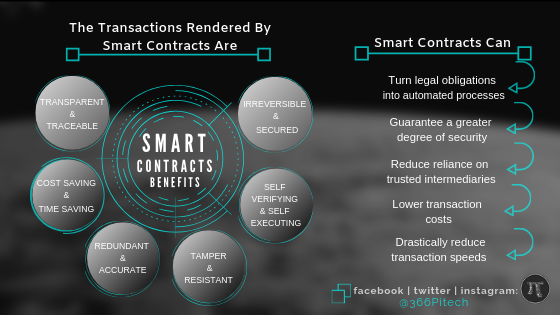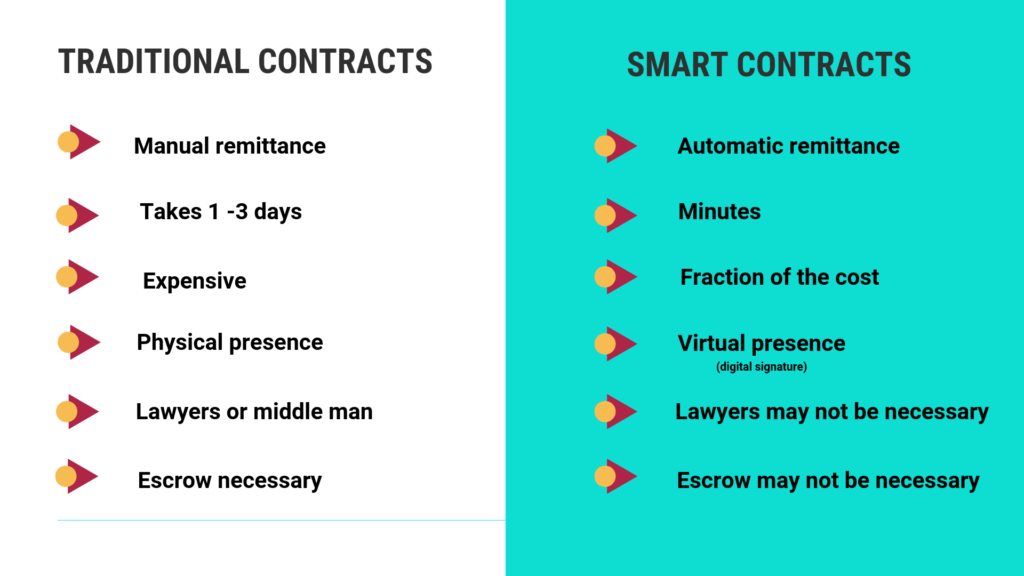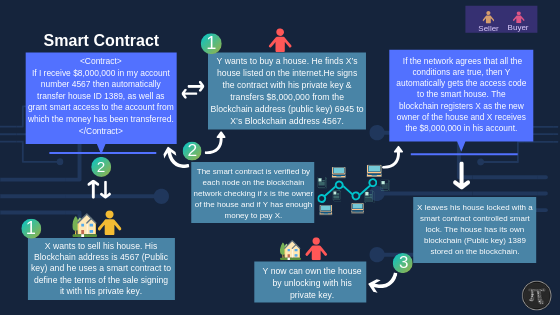Wait! Before we start, have you heard about Smart Contract ?
I am asking you this question as I was introduced to this new term a few weeks ago when I joined 366Pi. Everyone was talking about how Blockchains and Smart Contracts are revolutionizing value exchange. How digital currencies like Bitcoin and Ethereum depend on it. They tried explaining me how Blockchain network help people coordinate their exchanges in a trusted framework.
My brain amidst the cacophony of all these alien terms was trying to process these information in a super slow motion. Why is my brain so slow? Well, before I discover that, let me explain what I’ve understood about Smart Contract in a Layman’s term.
A smart contract or (crypto contract) is a self-executing contract where the terms and conditions between buyer and seller are defined and enforced using code in Blockchain environment. The benefit of smart contract is that it permits trusted transactions and agreements among two or more parties without the need for a central authority, legal system, or external enforcement mechanism. This is achieved because it uses technologies like Blockchain and cryptography. In simple words a Smart Contract is a computer program that executes when a set of conditions defined by the creator of the contract are met.

Smart Contract goal is to increase the transparency of transactions with a reduction in fees. It eliminates the potential conflicts that may arise in case, one of the parties to a contract fails to fulfill its obligations.
For example, in a normal scenario for getting a court registered documents as a proof, you would need to go to a lawyer or notary first. Give them money for their service and wait till you get the document you need. As these middleman deal with lot of paperwork and as they work on negotiations, it involves the risk of frauds.In such cases you can’t rely on people that you are dealing with. However, with smart contracts you will get your documents by paying the minimal amount as it eliminates the need for a middleman. Smart contracts automatically executes lines of code, stored on blockchain which contains predetermined rules. When these rules are met, these code executes on its own and provides the output. The rules or conditions are set up by the consent of both the parties. Besides, it allows you to exchange anything of value like money, property etc. in a transparent manner. Hence smart contracts reduce the risk of fraud and keep the system conflict free.
The figure below explains how smart contracts are different from traditional contracts.

Let’s understand this in 3 steps through an example:
Let’s say if there are two anonymous parties ‘X and Y’. They neither know nor trust each other. In a traditional contract they will usually need an intermediary, a trusted third party to verify transactions and enforce them. But with smart contracts & blockchains, they would not need any trusted intermediaries for the settlement of their transactions. Let’s take the example of buying and selling a house in 3 steps.
Step 1: If X wants to sell a house to Y using a smart contract on blockchain, the transaction would be verified by each node in the Blockchain Network to see if X is the owner of the house and if Y has enough money to pay X.
Step 2: If the network agrees that both conditions are true, Y automatically gets the access code to the smart lock for the house. The blockchain registers Y as the new owner of the house.
Step 3: X receives the amount directly in its account from Y, without any middleman.

On the blockchain, the information about the owner properties and assets are transparent. Every computer running the blockchain protocol can check whether a certain person is the rightful owner of the house or not.
As the owner of the house, one can authorize other person to own it. In such cases owning the house would only be possible with a smart key on the blockchain.
Some interesting facts:
1. Smart contracts were first proposed in 1994 by Nick Szabo, an American computer scientist who invented a virtual currency called “Bit Gold” in 1998.
2. Ethereum was the first decentralized computing platform that widely applied smart contracts in practice — now they can be created based on other Blockchains and the technology is actively used in the business world.
3. Smart contracts have the potential to track real-time performance and save costs.
References: https://bit.ly/2FluqII
https://bit.ly/2ER7C5k
https://bit.ly/2ER7C5k


